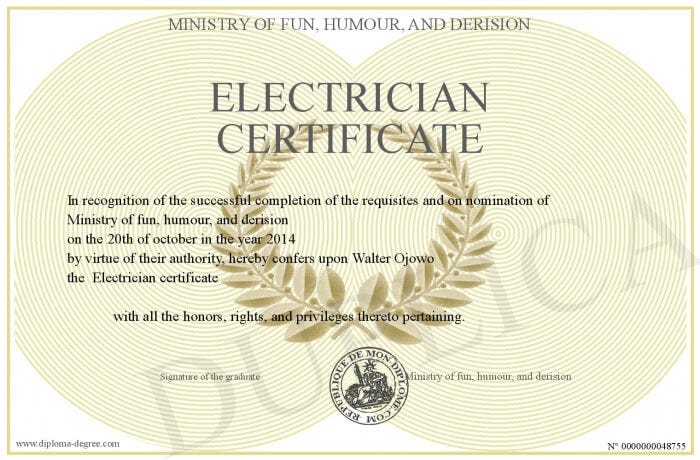What is an Electrician?
Electricians work on electrical equipment in our neighborhoods.
From installing new electrical boxes, to upgrading or maintaining used ones, electricians should know all about power, lighting, and electricity control systems.
Each job requires an electrician to look at a blueprint, understand what needs to be done, and then physical perform the requirements on the electrical box or other electric equipment.
Some electricians are skilled in very specific areas, such as installing electricity for homes, while others may be skilled in highway electrical systems.
It is important to learn all that you can in order to be a diverse electrician, one that can go from job to job and work independently with confidence.
Duties
Plan electrical systems for new buildings
Read blue prints, diagrams and technical documents
Install electrical systems like wiring, and lighting that are up to code for new buildings and old buildings alike
Form electrical circuits
Install and maintain electrical products
Inspect electrical products like circuit breakers and transformers
Maintain function of electrical products
Repair, replace, and upgrade outdated equipment
How to Become an Electrician
Step 1Educate Yourself
Before you get started on your endeavor to become a certified electrician, make sure you take the time to learn about all the different type of electricians, and what they do, so you can understand better which type of electrician you want to become.
Step 2Search and Discover
Find an apprenticeship that will suit your needs.
There are many ways to start an electrical apprenticeship whether it be through a technical school, community college, or even an employer, the goal is to learn and understand everything you need.
Step 3Get Employed
After you graduate, whether that’s with an associates degree or a certificate, it’s time to find a job!
Get out there and hunt down your new career.
Once you find a job, you’ll do some on the job training in order to complete your licensing test.
Step 4Test Your Skills
When you gain enough knowledge, it’s time to show the world what you can do.
Go out there and take your licensing test in order to become a journeyman electrician.
Education
If you are one of the three high school students who knows what they want to do after graduation, then you may want to think about taking some electrical engineering, physics, and math classes during your junior and senior years.
After you graduate, it’s wise to either start training at a technical school, get a certificate, go to a community college that supports studying to be an electrician, or even getting an apprenticeship at a local power company, either way, you are going to need a lot of training and hands-on experience.
Getting a certificate can take about a year and is good for those people who want to move into a career quickly.
Though, this type of education is going to give you the least amount of information, as certificates are typically better for electricians who want to brush up on their knowledge.
A technical school or receiving an associate degree at a community college is going to take around 2 years.
It may seem like this takes a long time, you’re gaining quite the education, and not just in electrical technology.
You’ll also have paid on the job training, that can result in a career when you graduate.
Lastly, there are apprenticeships, which is hands-on training with qualified electricians.
This can last for up to 5 years, the real world experience will get you closer to that license.
On the job training can last for about 144 hours of technical training, and over 2,000 hours of hands-on training.
That’s not going to happen in just a 40-hour work week.
Each state has a different course to achieving your license, but typically you’ll need to take an exam to become certified as an electrician.
The education doesn’t end after the exam, though, you’ll want to continue learning and keep up to date with codes, and even get specific certifications.
Video About The Career
Certification and Licensing
There are different types of licensing for all types of electricians.
A journeyman license is given to anyone that completes the apprenticeship program and passes the Electrical Journeyman exam.
In order to take this exam, you’ll have to prove you have the experience as well as the classroom time to take the exam.
Some of the information on the exam will include:
General electrical knowledge
Wiring materials and methods
Motors and generators
Electrical safety
Local, State, and Federal electrical code
NFPA codes
How to read blue prints
Communications systems
And much more.
A master electrician license can be granted after working two years as a journeyman electrician and passing the Master Electrician exam.
In order to take this test, you must have letters of reference from previous customers, you must also apply for this test, you aren’t just granted the test because you want it.
Every state requires the passing of the exam in order to be licensed as a Master Electrician.
Each state has their own requirements for the type of licensing necessary, and the way to achieve that licensing, so check with your state or local Electrical Contractors Board to get more information.
Certification Example:




